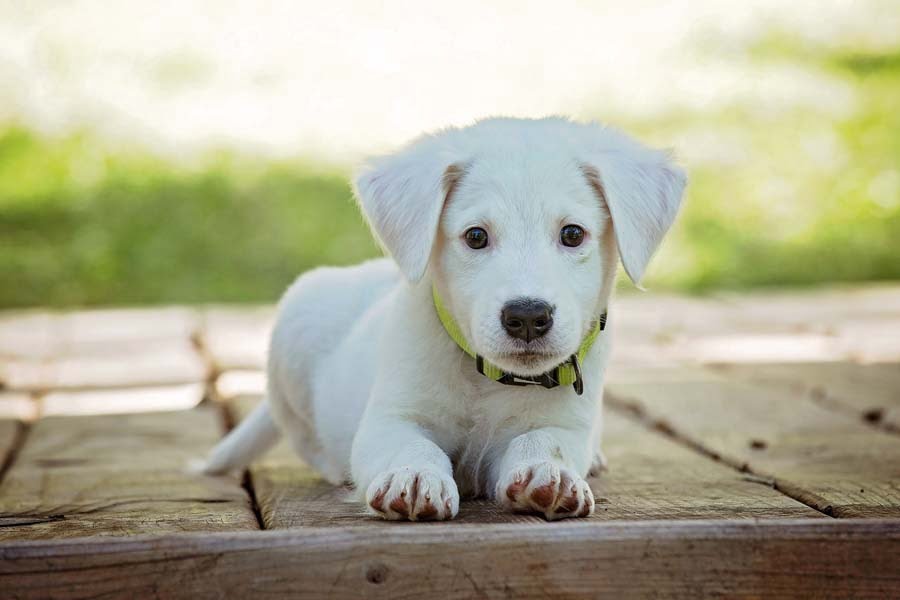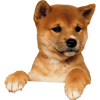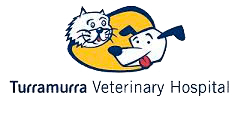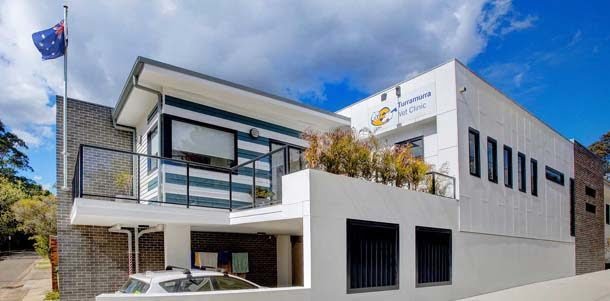A Turramurra Vet Article
Raising Your New Puppy During Isolation

Raising Your New Puppy During Isolation
by Dr Gretta Howard
Updated July, 2021
1. Socialising Your New Puppy During Isolation
The significant changes our community have had to face to protect ourselves and each other from COVID-19 also have an impact on how we socialise puppies.
While there are some challenges when it comes to raising a puppy while self-isolating, there are many benefits include being able to spend more time with your puppy during the critical socialisation period.
Socialisation
The socialisation period in puppies is between 3 – 12 weeks of age (up to 14 weeks in some puppies) and during this time, puppies develop critical social skills such as bite inhibition and resilience to some of life’s stressors through positive exposure to experiences.
Remember that the word ‘socialisation’ doesn’t just refer to socialising your puppy to other dogs, but also to people and experiences (eg handling, noises, objects). The goal is that your puppy has as many positive experiences as possible (not neutral or negative ones) during this important period.
While traditional face-to-face puppy classes are not currently running on site at Turramurra Veterinary Hospital, our experienced pet behaviour consultant, Katie Bedrossian, is running group puppy class via Zoom so that you have the resources to set up your puppy for success from the very beginning.
Our Zoom puppy preschool, for puppies between 8-14 weeks of age, will be held from Saturday July 24, 2021 until NSW Health restrictions are lifted. Puppy preschool times are 8.30am, 3pm or 4pm – simply choose the most convenient time for you for the 4-week course. Classes are rotating and can be joined at any time during the 4 weeks.
Book your spot by phoning (02) 9988-0198 or emailing info@turamurravet.com.au for further information.
There are many ways you can still help to socialise your puppy in the home environment:
- Handling
Practice gentle handling of your puppy from head to toe including lifting the lips to see the teeth, stroking the ears, holding each paw and lifting the tail. This will help socialise your puppy to being groomed and examined by your vet. - Noises
Many sounds that we are familiar with around the house such as the vacuum, washing machine and electric mixers, or outdoors such as thunder, buses, garbage trucks, are new sounds for puppies and can be a little scary if not introduced in a positive manner. When exposing your puppies to these new sounds, reward your puppy for a relaxed response with a delicious treat or back off if your puppy shows signs of fear. - Interactions
Take your puppy outdoors on a leash as part of your daily exercise routine to expose him or her to different people and other dogs while out and about. A dog’s sense of smell and hearing is highly developed compared to a human, so your puppy is taking in lots of information, even at a distance. It is best to avoid close interaction with dogs that are not known to you at this stage. - SurfacesIt is important to let your puppy walk on different surfaces including grass, concrete, wooden floor boards, up and down stairs and across bridges so that there is no fear of these later on.
Remember to have some healthy high value food rewards handy so that your puppy receives positive reinforcement and enjoys these sessions. Examples of healthy food treats include pieces of cooked skinless chicken or dried liver treats –but don’t give too many extras, as treats should make up no more than 10% of your dog’s diet.
There is an extensive puppy socialisation checklist available to download at https://drsophiayin.com/app/uploads/2015/12/Socialization_Checklist.pdf
While the changes we are all experiencing are challenging, the human-animal bond will be strengthened, as you will be able to more time with your puppy during this vital period of socialisation.
2. Exercise, training and health for your new puppy during isolation
Dogs are incredibly smart and your new puppy needs mental stimulation for learning through positive experiences such as exercise and training.
Nutrition
Puppies grow at a really fast pace, much faster than humans, so it is paramount that they receive a high quality premium diet formulated for puppies, so that their learning is properly supported with the right nutrients. Their growing bones also need the right calcium to phosphorus ratio, which has been formulated correctly in premium commercial pet food. It is actually much harder to feed a balanced diet for puppies using home cooked ingredients and these growing dogs may risk growth abnormalities. A premium puppy diet balanced for growth is what Turramurra Veterinary Hospital recommends.
Exercise
Dog walking is allowed and can be incorporated into your exercise regime during COVID-19.
Leash training is vital so that your puppy can walked outside safely and enjoy the outdoors. There are some great resources online to help teach your dog to walk on a lead such as the Dr Sophia Yin YouTube Channel.
If you prefer one-on-one sessions to discuss a particularly behaviour challenge, then dog behaviour consultations can be arranged remotely via Zoom with our behaviourist, Katie Bedrossian, by phoning (02) 9988-0198.
Off-leash dog parks may not be open during this challenging period, but as a rule, I don’t recommend visiting these parks until the puppy reaches 6 months of age, as it is important they learn how to interact properly with other dogs before being in an uncontrolled environment. While puppies are young, they tend to pick up more infectious diseases from dog parks, so this is another reason to avoid them.
Other ways to physically exercise with your dog include games such as go fetch or hide and seek.
Training
Training is a fun and mentally stimulating way to interact with your puppy, but must be done in a positive manner in order to be effective and avoid fear.
I often direct my clients to books such as “Before and After Getting Your New Puppy” by Dr Ian Dunbar or “Perfect Puppy in 7 Days: How to start your puppy off right” by Dr Sophia Yin, so that owners can learn how to interact with their puppy in a positive manner from the very beginning.
Toilet training should be kept to a routine and it is important never to get angry or punish your puppy if they do their business in the wrong spot. Take your puppy out first thing in the morning when he or she wakes up, after every meal and after each sleep and remember, take your rewards with you to encourage toileting in the right place.
Training should be a life long process to ensure your dog is taught good manners and therefore remains a valued member of the family.
Time Out
Everyone needs some time out from the people they live with and this includes pets too. To help the puppy get enough rest, ensure the family leaves the puppy alone if he or she is resting in their puppy bed. This can be their safe place.
Vaccinations
Most puppies will have already had their first puppy vaccination (C3) before you acquire him or her but it is important to realise that the full puppy vaccination course (usually 3 vaccinations) is not complete at this stage.
For this reason, it is important to avoid high density dog areas such as off-leash dog parks, ovals and sports fields, as Parvovirus can remain in the soil for extended periods.
We are lucky in the Turramurra area that the majority of dog owners have their dogs vaccinated, which means herd immunity is high. However, the risk of infectious diseases in puppies varies geographically, so it can be risky traveling with your puppy to areas where there is low vaccination uptake.
If you have a friend who has a really friendly well-socialised, well-trained, fully vaccinated dog then, (pending current NSW Health orders) I would encourage you to introduce the dogs to each other while on a leash (ensuring that humans remain socially distanced from another in line with COVID-19 restrictions). If your puppy is afraid of the other dog, do not force him or her to interact. Provide some delicious treats to both parties to reinforce the experience as being positive.
The risk of developing a behavioural problem due to lack of socialisation is significant, but at the same time, your puppy needs to be kept safe from diseases such as Parvovirus. I inform my clients to stick to concreted outdoor paths until 2 weeks after completing the full course of puppy vaccinations.
It is also a good idea to prevent your puppy interacting with dogs where you do not know their vaccination status, just in case.
Puppies are a source of joy during this period of change and uncertainty, so help your puppy grow into the best dog possible and enjoy the experience that dog ownership brings to your life.


